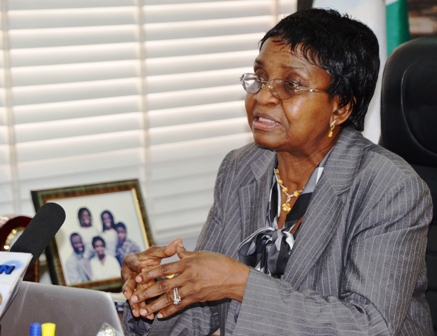-
Policy grants approval based only on safety profile: Use whether it works or not, as long as it’s safe for human consumption.
-
Manufacturer to conduct clinical trial after drug hits market


In the early 1950’s a new drug called Thalidomide was launched by a Swiss pharmaceutical company, Ciba (later Ciber-Geigy) first as a sedative and later as a remedy for “morning sickness” by pregnant women. It was considered safe by different registration authorities and used widely across Europe, Australia, Japan, among other countries and continent.
Many were excited by the effect of the new drug. But the euphoria didn’t last. Women in these countries who had taken it started giving birth to babies with congenital malformations. Children were born deformed, either without hands and feet or bound to the child’s trunk, a condition known as Phocomelia. In some cases the children were born with disfigured ear and eyes, facial palsies, internal damage or even congenital heart disease. Many women who took the drug were also reported to have had miscarriages.
The situation was however avoided in America because the country’s strict regulatory body, the U.S Food and Drug Administration did not approve or license the use of thalidomide. But the disaster startled the world nonetheless. It awoke a new consciousness, both on the part of the pharmaceutical industry and also the regulatory bodies worldwide, of the need never to push a new drugs into the market without adequate research and never take the issue of safety for granted in all ramifications. Consequently, it became mandatory that pharmaceutical companies carry out rigorous research and extensive trials before new drugs are launched.
Thus, for a drug to be approved for use in any country, it must have undergone different stages of clinical trials. These stages, recognized worldwide in the medical community include pre-clinical testing; Investigational New Drug Application (IND), Clinical Trials phases I, II,IIIa, IIIb, New Drug Application (NDA) and Approval; and phase IV or Post Marketing Surveillance (PMS).
The pre-clinical testing, according to experts, involves laboratory and animal studies to show biological activity of the compound against targeted disease and the evaluation of its safety.
After this, the company files an Investigational New Drug Application (IND) with the relevant regulatory authority such as the European Medicines Evaluation Agency (EMEA) or the U.S. Food and Drug Administration (FDA) and our own National Agency for Food and Drug Administration and Control (NAFDAC) for approval to test the drug in people.
The IND must shows results of previous experiments, how, where and by whom the new studies will be conducted; the chemical structure of the compound; how it is thought to work in the body; any toxic effects found in the animal studies; and how the compound is manufactured. In addition, the IND must be reviewed and approved by the Institutional Review Board where the studies will be conducted, while progress reports on clinical trials must be submitted at least annually to the approving bodies
The development process, after the IND approval will then progress to the Phase 1 clinical trials. These tests take about a year and involve about 20 to 80 normal, healthy volunteers. The tests study a drug’s safety profile, including the safe dosage range. The studies also determine how a drug is absorbed, distributed, metabolized and excreted, and the duration of its action. I once visited a hospital in Kent, England with some colleagues, where we saw a whole ward devoted to a clinical trial being conducted by a pharmaceutical company in healthy volunteers. We were amazed by the array of equipment in the ward which many of Nigeria’s tertiary hospitals cannot boast of today. We saw medical personnel waiting on the volunteers, testing every moves, pulse temperature, heartbeat etc almost every minute! It’s something you don’t see in this environment.
If this form of Phase 1 trial is successful, it progresses into the phase 11 trial where the compound is tested on 100 to 300 volunteer patients (people with the disease) to determine its effectiveness. According to the experts, this stage often takes about two years.”
Clinical Trials, Phase 111 involves more people, between 1000 and 3000 patients who are treated in clinics and hospitals. This may even spread across different countries and races in different parts of the world. In this phase, physicians monitor patients closely to determine the compound’s efficacy and identify its adverse reactions.
Following the completion of all three phases of clinical trials, the company then analyzes all of the data and files a New Drug Application (NDA) with the regulatory authority if the data successfully demonstrate safety and effectiveness. The NDA must contain all of the scientific information that the company has gathered. NDAs typically run 100,000 pages or more. By law, Once the EMEA or FDA approves the NDA, the new medicine becomes available for physicians to prescribe in the EU countries or in the US , when approved by FDA. However, the company must continue to submit periodic reports to the approving agencies, including any cases of adverse reactions and appropriate quality-control records. For some medicines, additional studies (Phase IV) may even be required to evaluate long-term effects.
In this era of computer and hi-tech, the conduct of clinical trial in any country now requires that the infrastructure and equipment being used must conform to the world standard for such country to be part of the global clinical trial network. Indeed in Africa, only few countries such as South Africa , Kenya , and Egypt are part of this network. By its large population, especially the black race, Nigeria automatically should qualify to be part of the network but alas the infrastructure is lacking. It’s no wonder that South Africa is the only African country currently taking part in the ongoing COVID-19 vaccine trial!
This is also why any of the Nigerian concoctions being licensed by NAFDAC for the management of COVID-19 is not likely to be registered for use by any other country in the world. We are simply not following the world standard for drug development as we tend to start our own drug development process from Phase 111 clinical trial!.
Just eight months after COVID-19 made its inglorious entry into the world and less than six months in Nigeria, NAFDAC has registered a drug for the treatment of the virus. The agency however says its license only covers the safety and not efficacy of the drug. Thus, only the user will determine whether the new herbal preparation works or not. In some instance the user will probably discover the efficacy in his grave!
NAFDAC requires the manufacturer to commence clinical trials after its “safety” registration which allows the drug to be sold to the Nigerian public. Clinical trials as can be seen above, is a laborious process which also requires a lot of funds over a long period. Many companies have had to stop further development of new compounds, despite the huge amount already expended, when trials reveal that such compounds are not as effective as earlier seen in the lab or as a result of certain negative effects or actions which could be harmful to the user.
The question then is how many Nigerian herbal drug manufacturers will consider withdrawing their product if it fails clinical trials? Besides, why go for clinical trials when you are already smiling to the bank following NAFDAC’s “safety approval”. The option, if the trial is made mandatory, is of course, to “fulfill all righteousness” by ensuring that the trial is conducted to suit your purpose of securing registration license.
Indeed, the Director of Africa Centre for Disease Control (Africa CDC) , Dr. John Nkengasong in a reaction to a question by this reporter on NAFDAC registration of the new COVID-19 herbal remedy, during the Africa CDC Press Conference on webinar earlier today, (Thursday July 23), said the rational for the use of traditional medicine therapies should be based on safety, efficacy and quality of the drug.
He urged: “Those are the areas of interest to us and we encourage countries to fulfill those areas of critical interest before putting out the remedy.”
Clearly, NAFDAC’s policy of granting interim approval that allows a drug to be sold only because it is considered safe for human consumption is, to say the least, in conflict with international standard for drug development and registration and should be urgently revised.
May we not experience the Thalidomide disaster in Nigeria.

